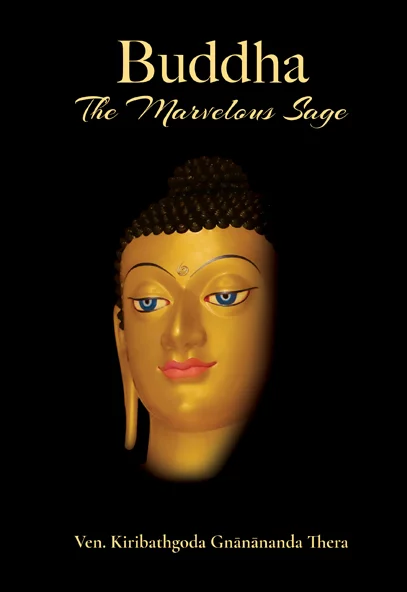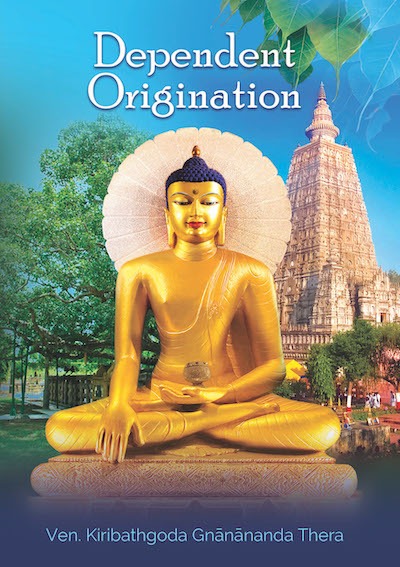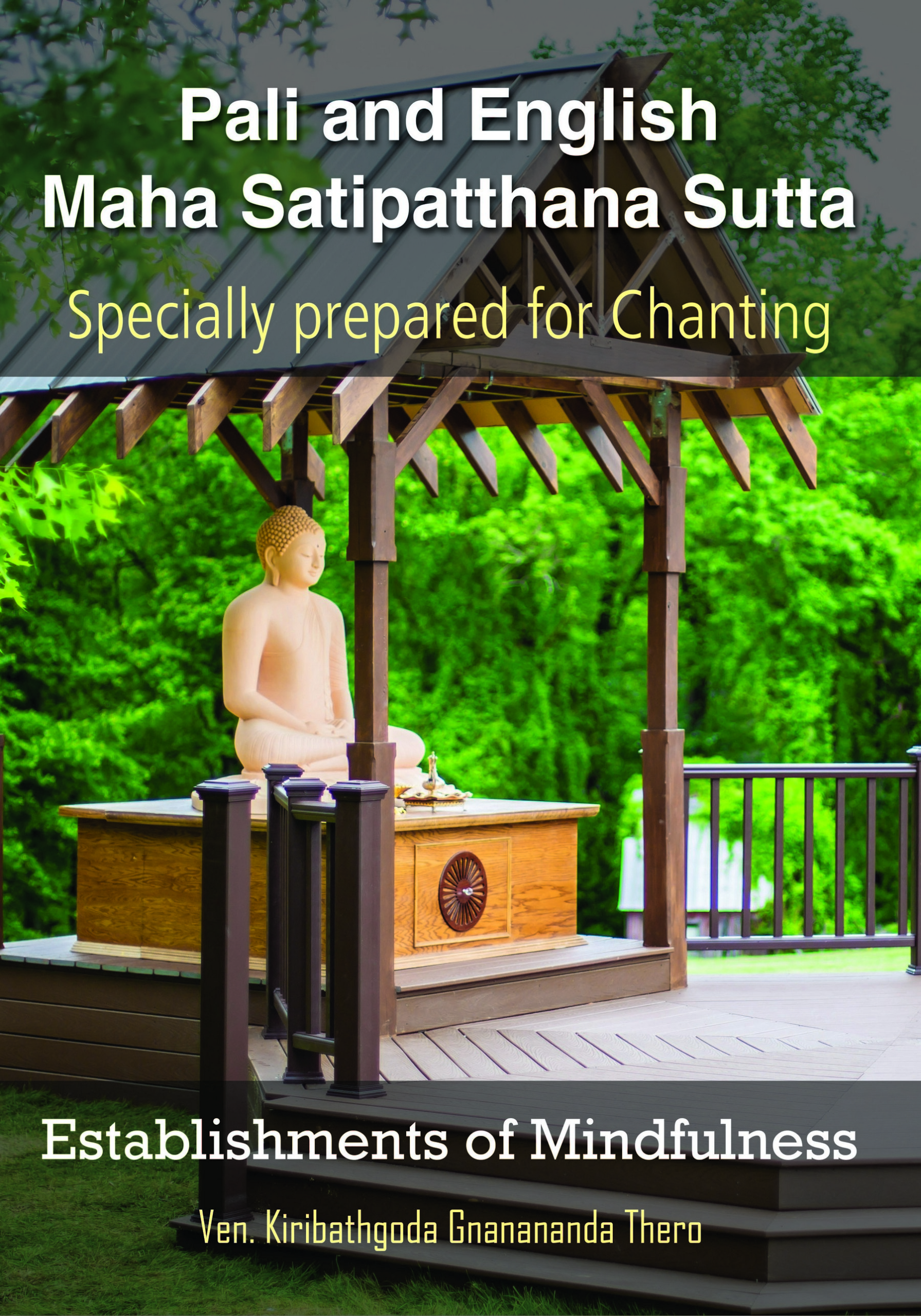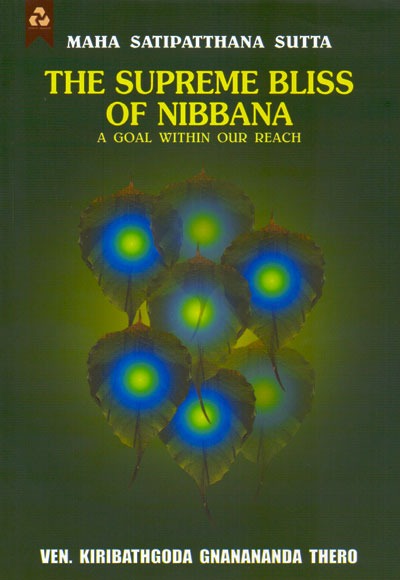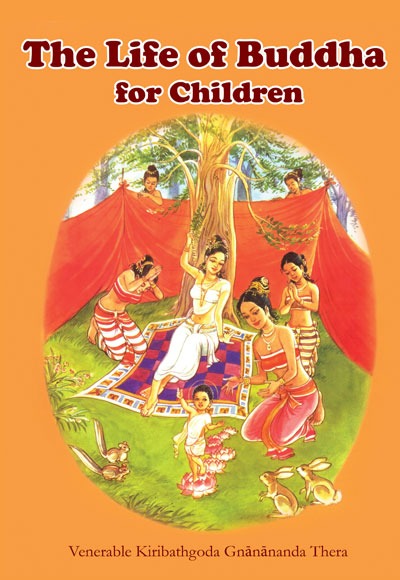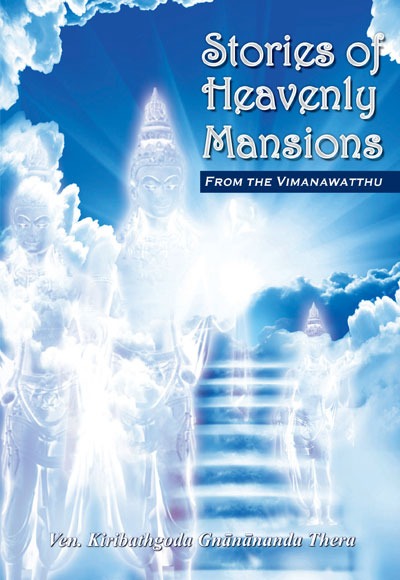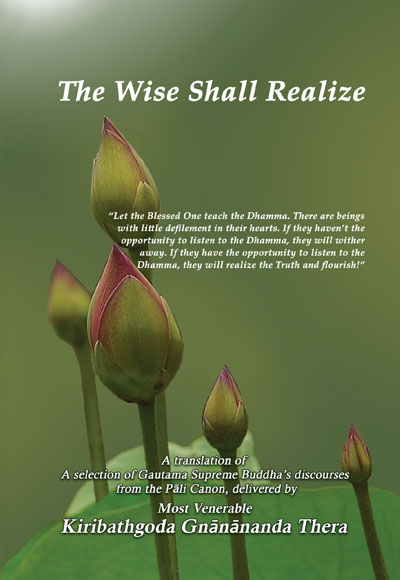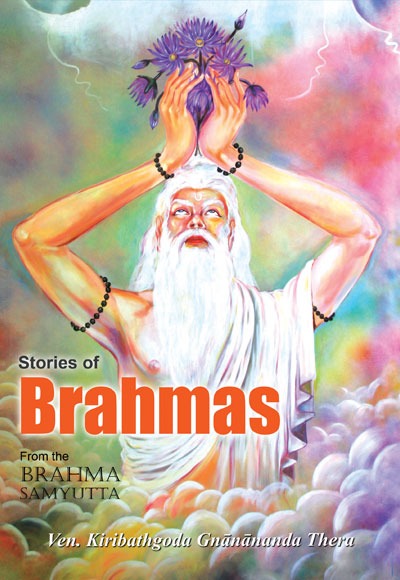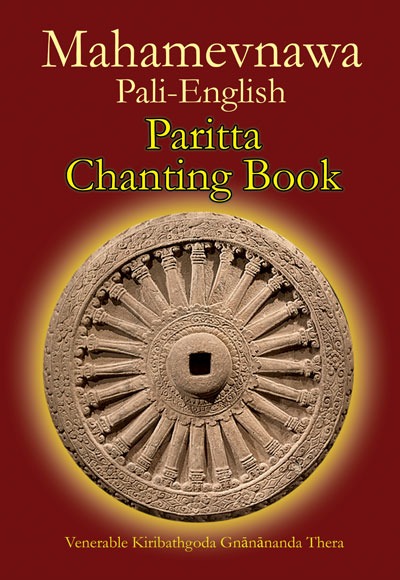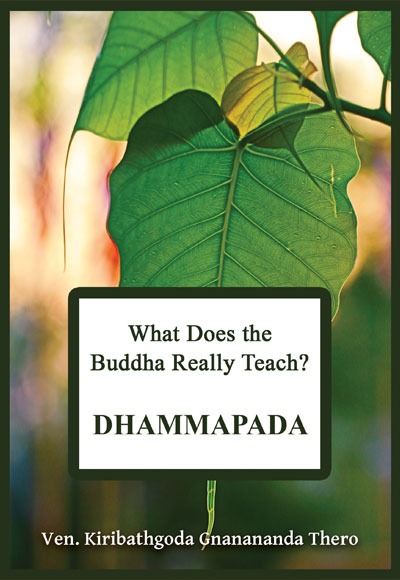This is a complete translation of the Itivuttaka found in the Sutta Pitaka.
It is a collection of 112 short discourses of the Buddha covering a wide range of topics relevant to all of us. Each one contains a beautiful set of verses that reinforce the teachings.
Group of Ones
1. Lobha Suttaṁ—Greed
2. Dosa Suttaṁ—Hatred
3. Moha Suttaṁ—Delusion
4. Kodha Suttaṁ—Anger
5. Makkha Suttaṁ—Contempt
6. Māna Suttaṁ—Conceit
7. Sabbapariññā Suttaṁ —Fully Understanding the All
8. Mānapariññā Suttaṁ—Fully Understanding Conceit
9. Lobhapariññā Suttaṁ—Fully Understanding Greed
10. Dosapariññā Suttaṁ—Fully Understanding Hatred
11. Mohapariñña Suttaṁ—Fully Understanding Delusion
12. Kodhapariñña Suttaṁ— Fully Understanding Anger
13. Makkhapariñña Suttṁ—Fully Understanding Contempt
14. Avijjāhīvarana Suttaṁ—Ignorance
15. Taṇha Saṁyojuna Suttaṁ—Craving
16. Paṭhama Sekha Suttaṁ—The Trainee
17. Dutiya Sekha Suttaṁ—The Noble Friend
18. Saṅghabheda Suttaṁ—Disunity in the Community of Monks
19. Saṅghasāmaggi Suttaṁ—Unity in the Community of Monks
20. Paduṭṭhapuggala Suttaṁ—A Corrupt Person
21. Pasannacitta Suttaṁ—The Confident Mind.
22. Māpuññabhāi Suttaṁ—Do Not Fear Merit
23. Ubho-attha Suttaṁ-Both Kinds of Welfare
24. Aṭṭhipuñja Suttaṁ—The Heap of Bones
25. Sampajāna Musāvāda Suttaṁ—Lying
26. Dānasaṁvibhāga Suttaṁ—Giving and Sharing
27. Mettācetovimutti Suttaṁ—The Development of Loving-kindness
Group of Twos
28. Pathama Bhikku Suttaṁ- The Monk (1)
29. Dutiya Bhikkhu Suttaṁ- The Monk (2)
30. Tapanīya Suttaṁ-Remorse
31. Atapanīya Suttaṁ-Non-Remorse
32. Pāpakasīla Suttaṁ- Evil Behaviour
33. Bhaddakasīla Suttaṁ—Good Behavior
34. Anātāpī Suttaṁ—Ardency
35. Pathama Janakuhana Suttaṁ—Deceiving People (1)
36. Dutiya Janakuhana Suttaṁ—Deceiving People (2)
37. Somanassa Suttaṁ—Living Joyfully
38. Vitakka Suttaṁ—Thinking
39. Desanā Suttaṁ—Teaching
40. Vijjā Suttaṁ—True Knowledge
41. Paññāparihāni Suttaṁ—Decline of Wisdom
42. Sukkadhamma Suttaṁ—The Bright Protectors
43. Ajāta Suttaṁ—The Unborn
44. Nibbānadhātu Sutta-The Nibbāna Element
45. Patisallāna Suttaṁ—Living in Seclusion
46. Sikkhānisaṁsa Suttaṁ—Benefits of Training
47. Jāgariya Suttaṁ—Wakefulness
48. Āpāyika Suttaṁ – Plane of Misery
49. Diṭṭhigata Suttaṁ – Overcome by Views
Group of Threes
50. Roots of Unwholesome
51. Dhātu Suttaṁ—Elements
52. Paṭhama Vedanā Suttaṁ—Feelings (1)
53. Duttiya Vedanā Suttaṁ—Feelings (2)
54. Paṭhama Esanā Suttaṁ—Search (1)
55. Dutiya Esanā Suttaṁ—Search (2)
56. Paṭhama Āsava Suttaṁ—Taints (1)
57. Dutiya Āsava Suttaṁ—Taints (2)
58. Tanhā Suttaṁ—Craving
59. Māradheyya Suttaṁ—Mara’s Domain
60. Puññakiriyavatthu Suttaṁ—Grounds for Making Merits
61. Cakkhu Suttaṁ—Eyes
62. Indriya Suttaṁ—Faculties
63. Addhā Suttaṁ-Time
64. Duccarita Suttaṁ- Misconduct
65. Sucarita Suttaṁ-Good Conduct
66. Soceyya Suttaṁ-Cleanliness
67. Moneyya Suttaṁ—Sagacity
68. Paṭhamarāga Suttaṁ—Passion (1)
69. Dutiyarāga Suttaṁ—Passion (2)
70. Micādiṭṭhikammasamādāna Suttaṁ—Wrong Views
71. Sammāditthisamādāna Suttaṁ—Right View
72. Nissaraniya Suttaṁ—Escape
73. Santatara Suttaṁ—More Peaceful
74. Putta Suttaṁ—Sons and Daughters
75. Vutthi Suttaṁ—Rainy Cloud
76. Sukhapatthanā Suttaṁ—Hoping for Happiness
77. Bhidura Suttaṁ—Falling Apart
78. Dhātu Saṁsandana Suttaṁ—Coming Together
79. Parihāna Suttaṁ—Falling Away
80. Vitakka Suttaṁ—Unwholesome Thoughts
81. Sakkāra Suttaṁ—Homage and Respect
82. Devasadda Suttaṁ—Divine Sounds
83. Pubbanimitta Suttaṁ—Omens
84. Bahujanahita Suttaṁ—For the Happiness of Many
85. Asubhānupassī Suttaṁ—Contemplating on Impurities
86. Dhammānudhammapaṭipanna Suttaṁ—Practice According to Dhamma
87. Andhakaraṇa Suttaṁ—Producing Blindness
88. Antarāmala Suttaṁ—Inner Strains
89. Devadatta Suttaṁ
90. Aggappasāda Suttaṁ—Supreme Confidence
91. Jīvikā Suttaṁ—Livelihood
92. Sanghāṭikaṇṇa Suttaṁ—Grabbing Hold of the Robe
93. Aggi Suttaṁ—The Fires
94. Upaparikkha Suttaṁ—Investigating
95. Kāmupapatti Suttaṁ—Sense Pleasures
96. Kāmayoga Suttaṁ—The Bonds
97. Kalyāṇasīla Suttaṁ—Noble Virtue
98. Dāna Suttaṁ—Giving
99. Tevijja Suttaṁ—The Triple Knowledge
Group of Fours
100. Brāhmana Suttaṁ—The True Brāmin
101. Caturanavajja Suttaṁ—Four Blameless Things
102. Āsavakkhaya Suttaṁ—The Destruction of the Taints
103. Samaṇabrāhmaṇa Suttaṁ—Recluses and Brāhmin
104. Sīlasampanna Suttaṁ—Possessing Virtue
105. Taṇhuppāda Suttaṁ—Arousing Craving
106. Sabrahmaka Suttaṁ—With Brahma
107. Bahukāra Suttaṁ—Very Helpful
108. Kuha Suttaṁ—Deceitful
109. Purusapiyarupa Suttaṁ—Delightful Nature
110. Cara Suttaṁ—While Walking
111. Sampannasīla Suttaṁ—Possess Virtue
112. Loka Suttaṁ—The World
75. Vutthi Suttaṁ—Rainy Cloud
This discourse was taught by the Blessed One, taught by the Arahant, the fully enlightened Supreme Buddha. This is as I heard:
“Monks, these three kinds of persons are found existing in the world. What three? One like a cloud without rain, one who rains locally, and one who rains everywhere.
Now, monks, what kind of person is like a cloud without rain? Monks, this is a person who does not give food, drink, clothing, vehicles, garlands, scents, ointments, beds, lodging, or lighting to any one: not to monks, nuns, or Brāhmins, and not to the poor, the homeless, and the needy. Monks, this is a person who is like a cloud without rain.
Now, monks, what kind of person is like a cloud that rains locally? Monks, this is a person who gives food, drink, clothing, vehicles, garlands, scents, ointments, beds, lodging and lighting to some monks, nuns, or Brāhmins, to some of the poor, the homeless and the needy, and not to others. Monks, this is a person who is like a cloud that rains locally.
Now, monks, what kind of person is like a cloud that rains everywhere? Monks, this is a person who gives food, drink, clothing, vehicles, garlands, scents, ointments, beds, lodging and lighting to all monks, nuns and Brāhmins as well as to the poor, the homeless and the needy. Monks, this is a person who is like a cloud that rains everywhere.
Monks, these are the three kinds of people existing in the world.”
This is the meaning of what the Blessed One said. So, with regard to this, it was said:
A certain person does not share the food and drinks he has gained with monks, nuns, Brāhmin, the poor, the homeless, and beggars. This kind of lowest person is called a cloud with no rain.
A certain person gives gifts to some people and not to others. The wise people call him one who rains locally.
A person who is responsive to requests and compassionate towards all beings distributes gifts delightedly: saying “Give them! Give!”
That person is like a great storm cloud—resounding, thundering—raining, filling with water and drenching all over the earth.
He earns his wealth honestly through his own effort. He satisfies those in need with food and drink.
This, too, is the meaning of what was said by the Blessed One. This is exactly as I heard.
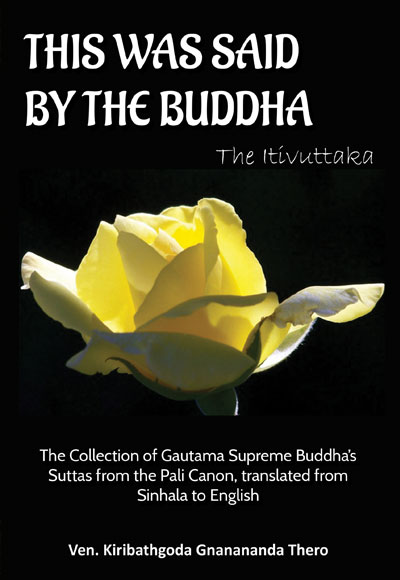
In Sri Lanka
All of these books are available at the book shops in our monasteries and our online store Mahamegha.store
In Colombo they are available at the Tripitaka Sadaham Poth Medura in the YMBA building on Austin Place. Phone 01 14 255 987.

